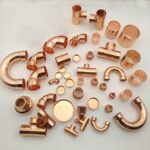Rotary Compressor
Rotary Compressor is a type of gas compressor that uses a rotating mechanism, such as screws, vanes, or scrolls, to compress gas. The rotating elements trap and compress the gas within the compressor housing, reducing its volume and increasing its pressure. Rotary compressors are known for their continuous and smooth operation, as opposed to the intermittent action of reciprocating compressors. They are highly efficient, compact, and have fewer moving parts, which leads to lower maintenance requirements. Due to their design, rotary compressors can handle a variety of gases and are widely used in HVAC systems, industrial refrigeration, air conditioning, and various industrial processes.
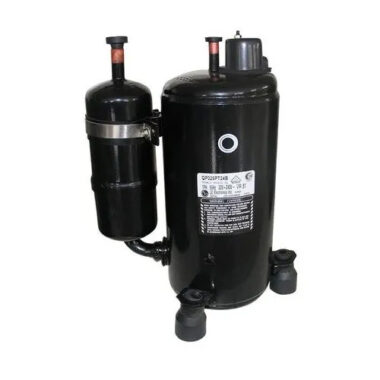
Rotary Compressor
Function and Application of
- Compression Mechanism: Utilizes rotating elements (e.g., screws, vanes) to trap and compress gas within the compressor housing.
- Gas Compression: Reduces the volume of the gas, thereby increasing its pressure to the desired level.
- Continuous Operation: Operates smoothly and continuously, suitable for applications requiring steady gas flow.
- Efficiency: Known for high efficiency due to fewer moving parts and minimal leakage.
- Compact Design: Takes up less space compared to reciprocating compressors, making it suitable for various installations.
- Versatile Applications: Used in HVAC systems, industrial refrigeration, air conditioning, and various industrial processes.
Rotary Compressor
Characteristics of
- Continuous Operation: Operates smoothly without pulsations, suitable for applications requiring steady gas flow.
- Efficiency: High efficiency due to fewer moving parts and minimal leakage, leading to lower energy consumption.
- Compact Design: Takes up less space compared to reciprocating compressors, making it easier to install in various settings.
- Versatility: Can handle a wide range of gases and operating conditions, making it adaptable for different applications.
- Quiet Operation: Generally operates with low noise levels, suitable for environments where noise is a concern.
- Low Maintenance: Requires less maintenance due to its robust design and fewer wear-prone parts.
Other Chiller Spares We Manufacture
Scroll Compressor
A scroll compressor is a type of positive displacement compressor that uses two interleaved spiral-shaped scrolls to compress gas. One scroll is stationary,

Semi-hermetic Compressor
A semi-hermetic compressor is a type of compressor where the motor and compressor are enclosed in a single, sealed housing, but unlike fully hermetic compressors,
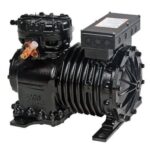
Hermetic Compressor
Hermetic Compressor is a type of compressor widely used in refrigeration and air conditioning systems. It features an airtight housing that encloses both the motor and the compressor,
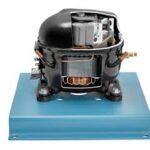
Screw Compressor
Screw Compressor is a type of rotary compressor that uses two intermeshing helical rotors to compress gas or air. As the rotors rotate, they trap and compress the gas
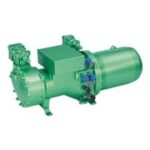
Reciprocating Compressor
A reciprocating compressor is a positive displacement device that compresses gas by using a piston driven by a crankshaft. The piston moves back and forth in a cylinder
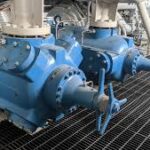
Refrigeration Gases
Refrigeration Gases, also known as refrigerants, are substances used in refrigeration systems to transfer heat from one area to another through a cycle of evaporation and condensation.
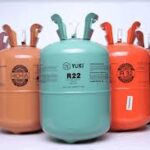
Axil Fan
Axil Fan is a type of mechanical fan commonly used for moving air or gas parallel to the axis of its blades. Unlike centrifugal fans that generate airflow perpendicular to the fan blades
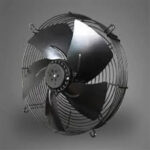
Condenser
Condenser is a key component in refrigeration and air conditioning systems that facilitates the transfer of heat absorbed by the refrigerant to the outside environment.
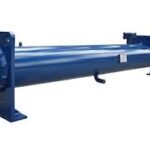
Chiller Pumps
Chiller Pumps, also known as condenser water pumps or circulation pumps, are essential components in chiller systems. Their primary function is to circulate water
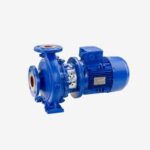
Chiller Control Panel
Chiller Control Panel is a centralized component of a chiller system that oversees and regulates the operation of key components such as compressors, pumps
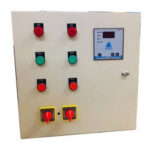
Expansion Valves
Expansion Valves are mechanical devices used in refrigeration and air conditioning systems to regulate the flow of refrigerant into the evaporator. They maintain a controlled reduction

Copper Pipes and Fittings
Copper Pipes and Fittings are commonly used in plumbing and HVAC systems due to their durability, corrosion resistance, and excellent heat transfer properties.
